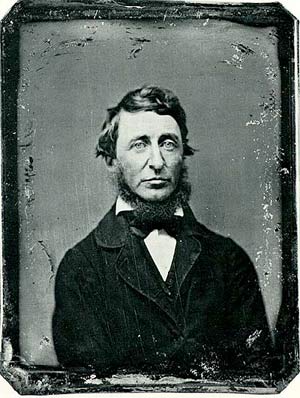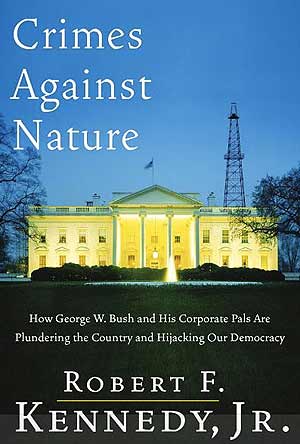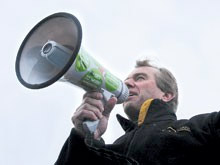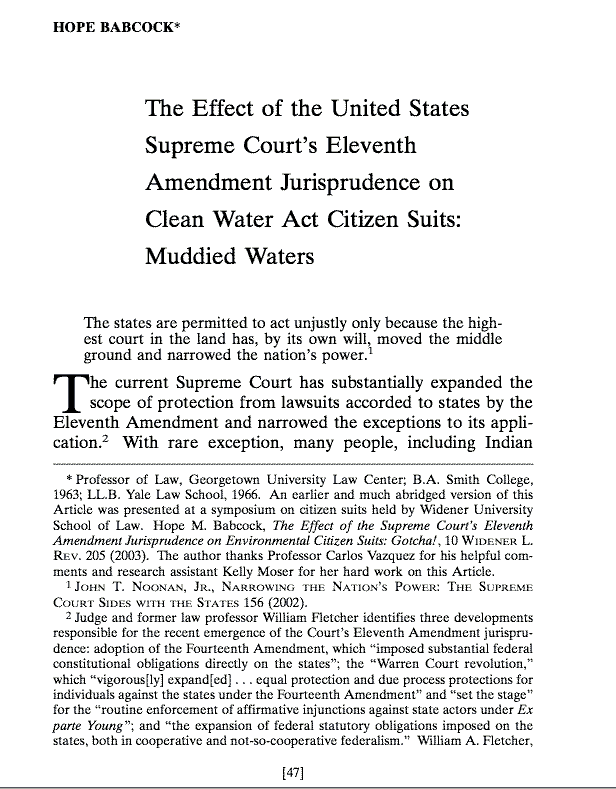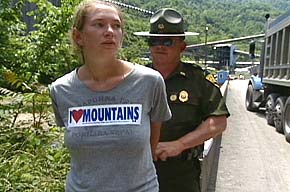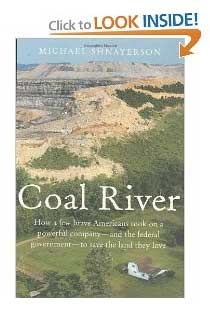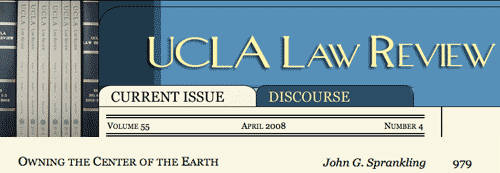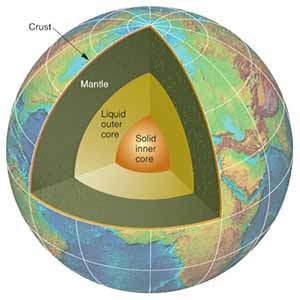Contains the keyword legal
A Project in Cooperation with the Thoreau Society.
The Thoreau Reader - Annotated works of Henry David Thoreau
While Walden can be applied to almost anyone's life, "Civil Disobedience" is like a venerated architectural landmark: it is preserved and admired, and sometimes visited, but for most of us there are not many occasions when it can actually be used.
Still, although seldom mentioned without references to Gandhi or King, "Civil Disobedience" has more history than many suspect.
In the 1940's it was read by the Danish resistance, in the 1950's it was cherished by those who opposed McCarthyism, in the 1960's it was influential in the struggle against South African apartheid, and in the 1970's it was discovered by a new generation of anti-war activists. The lesson learned from all this experience is that Thoreau's ideas really do work, just as he imagined they would.
See: The Higher Law: Thoreau on Civil Disobedience and Reform by Henry David Thoreau, edited by Wendell Glick, with an introduction by Howard Zinn.
As a result of his writings and personal witness, we are the heirs of a legacy of creative protest. - Martin Luther King, Jr, Autobiography
This work is included in Fracking Resource Guide as an homage to the many individual voices and blogs I will continue to read that help the world stay informed about the dangers of hydrofracking.
I will join you at the barricades. Drilling isn't safe.
See: Essay by Peter Suber. "Civil Disobedience".
...The Nuremberg principles require disobedience to national laws or orders which violate international law, an overriding duty even in (perhaps especially in) a democracy.
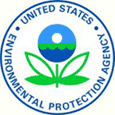
U.S. Environmental Protection Agency (EPA MOA). 2003. A Memorandum of Agreement Between The United States Environmental Protection Agency and BJ Services Company, Halliburton Energy Services, Inc., and Schlumberger Technology Corporation: Elimination of Diesel Fuel in Hydraulic Fracturing Fluids Injected into Underground Sources of Drinking Water During Hydraulic Fracturing of Coalbed Methane Wells, Dec. 12, 2003.
"While the Companies do not necessarily agree that hydraulic fracturing fluids using diesel fuel endanger USDWs when they are injected into CBM production wells, the Companies are prepared to enter into this agreement in response to EPA’s concerns and to reduce potential risks to the environment." See Drilling Around the Law for a follow-up on this voluntary agreement. According to the Environmental Working Group's report, "This promise, however, applied to only coalbed methane wells -- a small portion of natural gas and oil wells drilled – and only to those drilled directly into underground sources of drinking water."
In this powerful and far-reaching indictment of George W. Bush's White House, Robert F. Kennedy, Jr., the country's most prominent environmental attorney, charges that this administration has taken corporate cronyism to such unprecedented heights that it now threatens our health, our national security, and democracy as we know it... --from the book jacket.
Robert Kennedy Jr. says we the people have the right to protect our commons.
Photo by Shadia Fayne WoodSee: Sarah van Gelder. Yes Magazine. May 27, 2010. "Protecting our Water Commons: Interview with Robert Kennedy Jr."
van Gelder: How important is the public trust doctrine in enforcing the idea that the waters are a commons and that ordinary people have a right to it?
Kennedy: There are two ancient laws that underlie all modern environmental laws: One is the nuisance doctrine that essentially says you can use your property any way you want, but if you pollute and it escapes your property and goes onto somebody else’s property, you’re violating the law.
The other is the public trust doctrine, which says you can’t do anything that is going to diminish the commons, which includes any property that is not susceptible to private property ownership, like air, water, the fisheries, wetlands, wildlife, the wandering animals, rivers, streams, shorelines, aquifers, underground rivers, etc. Everybody has the right to use the commons, but nobody can use them in a way that diminishes their use and enjoyment by others.
This is ancient law that goes back to Roman times when every citizen—rich or poor, humble or noble, African or European—had a right to cross the beach, throw in a net, and take out a share of the fish. And the emperor himself couldn’t stop them.
The first thing that happens in a tyranny is the privatization of the public trust by powerful entities...
See: Flow - The War Between Public Health and Private Interests
See: Robert F. Kennedy Jr. Feb. 19, 2004. The Nation. "The Junk Science of George W. Bush".
See: Robert F. Kennedy, Jr. Mobilizes on Mountaintop Removal
See: Mountaintop Removal Redux: Bobby vs. Blankenship II
See: New Starpower in the Fracking Fight
See Also:
Barlow, Maude. 2009. Blue Covenant: The Global Water Crisis and the Coming Battle for the Right to Water. The New Press, June 1.
Ivins, Molly. 2003. Bushwhacked : Life in George W. Bush's America. 1st ed. New York: Random House.
Shnayerson, Michael. 2008. Coal River. 1st ed. Farrar, Straus and Giroux, January 8.
According to the website, Endangered Environmental Laws, "...over time, courts have transformed [the Eleventh Amendment] into a sweeping doctrine of state “sovereign immunity,” unmoored from the Constitution’s text, and in recent years, a conservative bloc of the Supreme Court has further expanded states’ immunity from private lawsuits.
In the environmental context, this has led to near-total immunity of state agencies from citizen suits under the federal coal-mining statute; to similar challenges (so far unsuccessful) to citizen litigation under the Clean Air Act and the Endangered Species Act; and to dismissal of state employees’ whistleblower complaints under the Solid Waste Disposal Act and other laws."
"The states are permitted to act unjustly only because the highest court in the land has, by its own will, moved the middle ground and narrowed the nation's power.
With rare exception, many people, including Indian tribes, federal employees, patent holders, the elderly, and the disabled, find themselves unable to vindicate rights granted by federal laws in any court when the defendant is a state or a state agency."
Babcock, H. “Effect of the United States Supreme Court's Eleventh Amendment Jurisprudence on Clean Water Act Citizen Suits: Muddied Waters, The.” Oregon Law Review 83 (2004): 47.
See: Rulings Restrict Clean Water Act, Foiling E.P.A.
See: Activists Block Entrance to DEP Headquarters, Condemn Failed Enforcement
Michael C. O'Connell reveals how strip-mining in West Virginia is impacting local communities in the heart of coal-mining country.
While the demolition of the ancient mountain tops alters the state's natural landscape, the transportation of the mountain debris to adjacent valleys is creeping into natural resources used by area residents.
Filmed over a two-year period, Mountain Top Removal features citizen activists, such as Ed Wiley, Larry Gibson, Julia Bonds, Maria Gunnoe, and Mountain Justice Summer volunteers, in their efforts to stop the destruction of Southern Appalachia's natural landscape.
The film also includes commentary from Jeff Goodell, author of Big Coal: The Dirty Secret Behind America's Energy Future, geologists Dr. William Schlesinger and Dr. Peter Taft from Duke University's Nicholas School of the Environment and Earth Sciences, and also Bill Raney, President of the West Virginia Coal Association.
See: Mike Roselle clip 2-from the Southern Regional Jail West Virginia
See: Code Black: Coal’s Assault on America’s Health Campaign | PSR
See: Marsh Fork Elementary: Journey Up Coal River | A Community and Strip Mining
From Publishers Weekly
Through vivid first-person reporting and a thorough culling of court transcripts, newspaper clippings and corporate reports, Vanity Fair contributing editor Shnayerson (The Killers Within) has crafted an incriminating indictment of the Appalachian King Coal industry in West Virginia, and of the man he defines as its rapacious kingpin, Massey Energy's CEO, Don Blankenship.
The author's sympathies lie clearly with opponents of mountaintop mining, most prominently young attorney Joe Lovett and citizen activist Judy Bonds. Both have fought against a form of mining that shears off the tops of hills and dumps rubble into valleys and streams—a process abetted by the collusion of the state's often-lackadaisical Department of Environmental Protection, the U.S. Army Corps of Engineers' propensity to grant stream-destroying permits without oversight and the easing of environmental controls by the Bush administration.
Shnayerson's compelling take on toxic mining methods and their heartrending impact on Appalachian inhabitants and their culture, has a wider focus than Erik Reece's 2006 title, Lost Mountain, which reported on one mountaintop's destruction, and strong echoes of the stomach-churning legal machinations recounted in Jonathan Harr's 1995 bestseller, A Civil Action.
See: Michael Shnayerson web page.
See: Marsh Fork Elementary: Journey Up Coal River | A Community and Strip Mining
See: WATER | Aurora Lights. Public Health & Coal Slurry - Water Quality ::: Journey Up Coal River
See: Tree spiker : from Earth First! to lowbagging: my struggles in radical environmental action
See: Leveling Appalachia: The Legacy of Mountaintop Removal Mining
See: Environmental Issues and Challenges in Coal Bed Methane Production
See: Climate Ground Zero
See: Mountaintop Removal
How far below the earth’s surface do property rights extend? The conventional wisdom is that a landowner holds title to everything between the surface and the center of the earth. This article is the first legal scholarship to challenge the traditional view.
Graphic: Discover Magazine
It demonstrates that the “center of the earth” theory is poetic hyperbole, not binding law. Broadly speaking, the deeper the disputed region, the less likely courts are to recognize the surface owner’s title.
The emergence of new technologies for use of the deep subsurface—such as heat mining and carbon sequestration, both of which may help mitigate global climate change—requires that we develop a new model of subsurface ownership.
Accordingly, this article proposes and evaluates four alternative approaches to subsurface property rights. The preferred model would recognize the surface owner’s title for only 1000 feet downward. If adopted, this approach would eliminate over 99 percent of the supposed real property ownership in the United States.
See: Probe Earth's Interior with Advanced Radiation Sources
See: The Deep Hot Biosphere : The Myth of Fossil Fuels
See: Center for Dark Energy Biosphere Investigations (C-DEBI)
This video shows Texas Black Angus cattle drinking from drilling sludge pits at two different drilling sites in Denton County. I have witnessed cattle drinking from sludge pits regularly over the past few years.
Unlike most other states, Texas law does not require that sludge pits be lined or fenced, but it does require the pits be "cleaned up" within 120 days after completion of the well.
There are many sludge pits in Texas that never get cleaned up. These are a threat to wildlife, livestock, soil and our drinking water.
See Bluedaze by Sharon Wilson (TXSharon)
The coining of the term eco-terrorism is credited by many to the Executive Director of the Center for the Defense of Free Enterprise, Ron Arnold.
In the aftermath of the September 11 terrorist attacks, the word 'terrorism' has become a potent political weapon. For years Arnold has blurred the boundaries between what constitutes civil disobedience and elevated vandalism to equal terrorism. The conflation of civil disobedience with terrorism is a calculated strategy.
Legislation using the cover of cracking down on 'eco-terrorism' - such as that currently being promoted by the American Legislative Exchange Council - is percolating its way through the legislatures of a number of U.S. states. While vandalism and criminal damage is already illegal, the attraction of such legislation is in defining "terrorism" so broadly as to ban civil disobedience.
One of the most potent tactics employed over the last twenty years in the environment movement has been through organising peaceful civil disobedience protests. Such protests often result in an issue gaining widespread media coverage prompting public discussion of important public issues and, in some cases, resulted in environmental victories.
Groups that have a high media profile also have the ability to successfully raise funds from appeals directly to millions of citizens. For the conservative movement, legislating against civil disobedience under the guise of cracking down on 'ecoterrorism' would dramatically reduce both the media profile and fundraising capacity of groups such as Greenpeace, the Rainforest Action Network and local grassroots groups.
Please note that information taken from Wikis should be verified using other, more reliable sources. It is a good place to start research, but because anyone can edit a Wiki, we do not recommend using it in research papers or to obtain highly reliable information.
Gas drilling companies such as Halliburton say the gas drilling technique known as hydraulic fracturing, or fracking, is safe, but opponents contend it pollutes groundwater with dangerous substances.
Now, new evidence has emerged possibly linking natural gas drilling to groundwater contamination. ProPublica journalist Abrahm Lustgarten reports federal officials in Wyoming have found that at least three water wells contain chemicals used in hydraulic fracturing.





